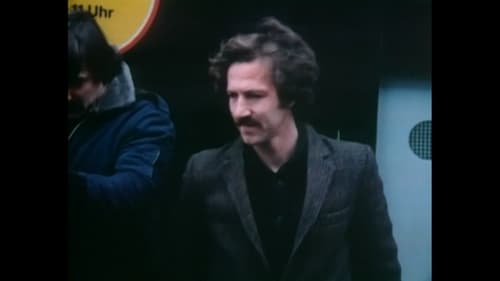
Writer
An intimate quest by a son to understand the identity of his father; a look back at the Berlin of the 30s and a special group of friends who loved life and, in the darkest hours of German history, ultimately chose good over evil.

Director
An intimate quest by a son to understand the identity of his father; a look back at the Berlin of the 30s and a special group of friends who loved life and, in the darkest hours of German history, ultimately chose good over evil.

Director
On 20 July 1944, an assassination attempt was made on the life of Adolf Hitler; its failure and that of the coup d'état planned to follow, Operation Valkyrie, lead to the arrest and execution of thousands of people. In his film, "The Traitors' Children", Christian Weisenborn presents harrowing encounters with the children of the executed conspirators, while also taking a look at his own family history. His parents belonged to a group of anti-fascists, which the Gestapo called the "Rote Kapelle" (the red chapel). Weisenborn's parents survived, but 52 of their friends were hanged in Plötzensee in 1942/43. Weisenborn also interviewed their sons and daughters.

Himself

Writer
Christian Weisenborn and Werner Herzog know each other for more than 40 years. His first film on Werner Herzog "I am my films" (1976-78) covered Herzog's beginning as a filmmaker, the new film is a sequel titled "I am my films, part 2 - 30 years later" in which Weisenborn talks about Werner Herzog as a documentarian of the past 30 years.

Director
Christian Weisenborn and Werner Herzog know each other for more than 40 years. His first film on Werner Herzog "I am my films" (1976-78) covered Herzog's beginning as a filmmaker, the new film is a sequel titled "I am my films, part 2 - 30 years later" in which Weisenborn talks about Werner Herzog as a documentarian of the past 30 years.

Editor
"Sometimes the ball is bewitched," says legendary soccer coach Rudi Gutendorf. He's the one who would know, after having coached 6 first division soccer teams in Germany alone and countless others in 38 countries around the world.

Cinematography
"Sometimes the ball is bewitched," says legendary soccer coach Rudi Gutendorf. He's the one who would know, after having coached 6 first division soccer teams in Germany alone and countless others in 38 countries around the world.

Director
"Sometimes the ball is bewitched," says legendary soccer coach Rudi Gutendorf. He's the one who would know, after having coached 6 first division soccer teams in Germany alone and countless others in 38 countries around the world.

Director
A 1991 film written and directed by Liliane Targownik.

Director
Es war einmal, vor vielen Jahren, da begab es sich, daß der heute so ruhmreiche FC Bayern zu Beginn der neuen Saison ziemlich miserabel dastand: Der Kaiser war fort, kein neuer Pokal schmückte die Trophäensammlung, und statt Harmonie und vollen Konten drückten Frust und Schulden die Stimmung. Und justament während dieser für den Verein so wichtigen Bundesligarunde 1978/79 konnten die Filmemacher Christian Weisenborn und Michael Wulfes die damals noch aktiven Spieler Paul Breitner und Uli Hoeneß dazu überreden, sich eine Saison lang von ihnen mit der Kamera begleiten zu lassen.

Editor
Interview film with German director Werner Herzog revisiting the films he made up to ca. 1977.

Director
Interview film with German director Werner Herzog revisiting the films he made up to ca. 1977.

Location Manager
Na manhã de 26 de maio de 1828, na cidade de Nuremberg, um rapaz foi abandonado com uma pequena carta endereçada ao capitão da cidade. Os habitantes acharam que o rapaz fosse doente ou tivesse alguma deficiência, pois não conseguia andar e sequer se comunicar. A carta dizia seu nome, Kaspar Hauser, e explicava que toda a vida ele havia passado preso em uma torre, nunca aprendendo nada ou vivendo em sociedade. Após ser adotado por uma família e aprender a falar, o rapaz contou que até o dia em que foi abandonado jamais havia visto antes o rosto de uma pessoa. Kaspar tornou-se um fenômeno entre a realeza alemã, principalmente pela aptidão assustadora que tinha para a música, mas era incapaz de diferenciar sonhos e realidade e não conseguia compreender as convenções sociais, como a política e a religião. O filme é baseado em fatos reais. (e 12 - Estimado 12 Anos)

Property Master
Na manhã de 26 de maio de 1828, na cidade de Nuremberg, um rapaz foi abandonado com uma pequena carta endereçada ao capitão da cidade. Os habitantes acharam que o rapaz fosse doente ou tivesse alguma deficiência, pois não conseguia andar e sequer se comunicar. A carta dizia seu nome, Kaspar Hauser, e explicava que toda a vida ele havia passado preso em uma torre, nunca aprendendo nada ou vivendo em sociedade. Após ser adotado por uma família e aprender a falar, o rapaz contou que até o dia em que foi abandonado jamais havia visto antes o rosto de uma pessoa. Kaspar tornou-se um fenômeno entre a realeza alemã, principalmente pela aptidão assustadora que tinha para a música, mas era incapaz de diferenciar sonhos e realidade e não conseguia compreender as convenções sociais, como a política e a religião. O filme é baseado em fatos reais. (e 12 - Estimado 12 Anos)

Director
Uma série documental que começa na época de Lenin e acaba com Gorbachev. Dá-se relevo às pessoas e aos acontecimentos que mais ilustraram a ascensão de uma ideia revolucionária e a queda de um império. Como é que é possível que esta ideia possa fascinar tanta gente, incluindo centenas de intelectuais? Como é que milhares de pessoas acabam na repressão, na indignidade e na opressão econômica e mesmo assim continuam fiéis ao conceito de comunismo? Neste documentário esta questão é posta a políticos e conceituados cientistas. Inclui ainda depoimentos de Sergei Khruschev, filho de Nikita Khrushchev, e de antigos elementos do KGB, como Vladimir Kryuchkov.













